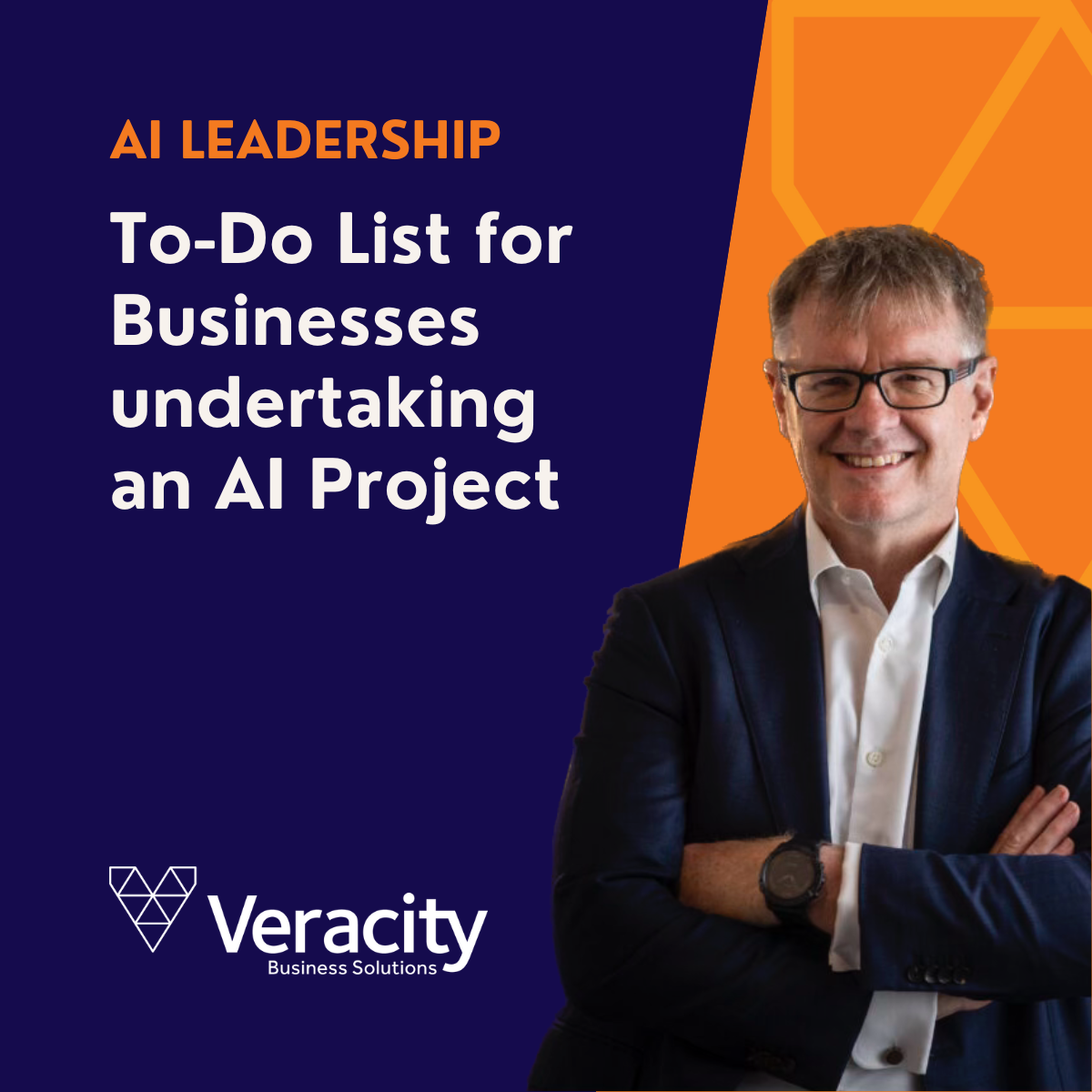To-Do List for Businesses BEFORE undertaking an AI Project
Bill Owens, Managing Director - Veracity

At a recent Queensland Leaders Alumni knowledge session, Bill Owens, Managing Director of Veracity Business Solutions captivated the room of business leaders with his insightful perspective on the ever-evolving AI landscape, with a few cautionary tales for businesses eager to implement AI technologies within their organisation.
If you missed Bill’s talk, below is a summary with key questions to ask BEFORE undertaking an AI project.
Firstly, what is AI?
In a nutshell, Generative AI is a type of artificial intelligence that can create original content, such as text, images or music by
learning patterns and structures from existing data. AI uses what is called Large Learning Models (LLM) to produce novel and coherent
output which can often resemble human-created content.
Why AI is important for business
Generative AI presents a significant
economic opportunity for Australia. In fact, it’s predicted that GAI could potentially add tens of billions to the economy by 2030.
Generative AI has the ability to enhance businesses by automating tasks and aiding complex processes, resulting in increased productivity and quality. On average, Generative AI can automate 22% of task-hours while augmenting an equal share, benefitting workers across a range of occupations.
Shifting menial tasks off a workers to-do list can free up time for deep thinking and innovation, leading to new products and services, new jobs, and broader economic growth. For many business leaders, it’s hard to deny that Generative AI can help businesses to work smarter, not harder.
According to the Tech Council of Australia, adoption scenarios predict contributions ranging from
$45B to $115B annual by 2030, which is equivalent to 2-5% of Australia’s economy.
How businesses are currently utilising AI
Many have jumped into ChatGPT and fiddled around with generating a first-draft of written content, but a number of lesser-known utilisations of AI to positively impact businesses include:
- Generating copyright-free images
- Drafting emails, proposals and other documents utilising previous document examples and learned business context
- Reporting trends and outliers, like the biggest selling products, or making predictions for stock levels or resource shortfalls
- Sending along an AI avatar to a meeting conflict to document meeting transcripts and action points
AI cons and hazards
While there are a host of benefits for businesses, the potential risks and business implications are enormous and can’t be ignored.
Think about the business and legal implications of AI surfacing and sharing confidential information such as salaries of co-workers and/or HR review details. News headlines also warn about ChatGPT ‘hallucinations’ citing legal precedents that don’t actually exist, unintentional biases and privacy breaches, for example, automatically excluding job candidates due to age, or Target revealing a teenage girl’s pregnancy to her parents.
So, before you jump ahead and implement AI tools within your business, make sure your home is tidy.
Considerations before implementing AI tools
- What is the business strategy that justifies the investment?
- Is your ICT platform AI ready?
- Do you have the AI expertise to embed AI into the fabric of your business?
- Do you have an organisation and culture that will support AI?
- Do you have the governance in place to ensure AI is developed responsibly?
To read more of Bill’s insights into technology, digital literacy and data governance, connect with Bill Owens on LinkedIn, and follow Digital Literacy for Leaders and Veracity Business Solutions for in-depth analysis and insights for business leaders.

